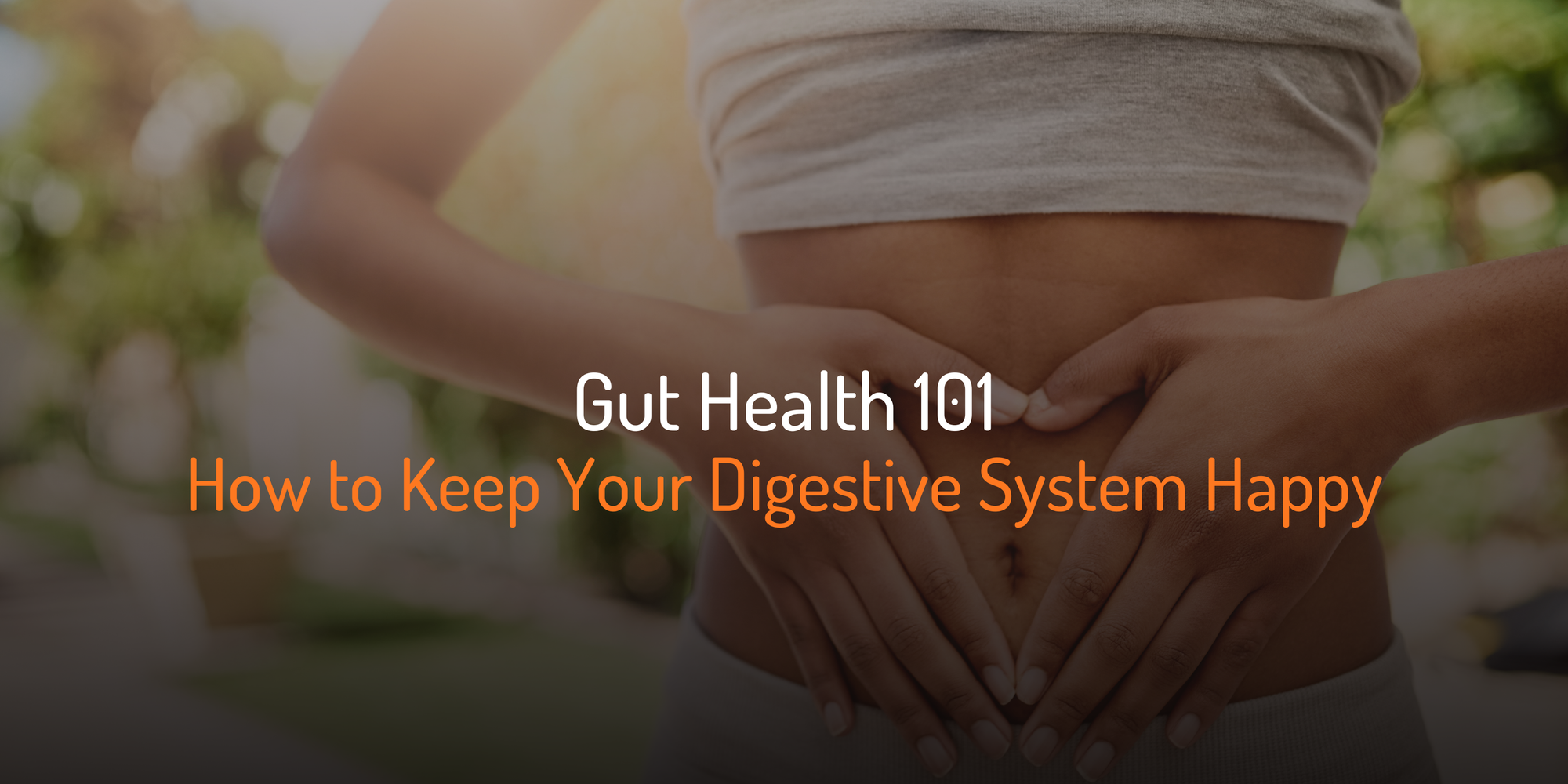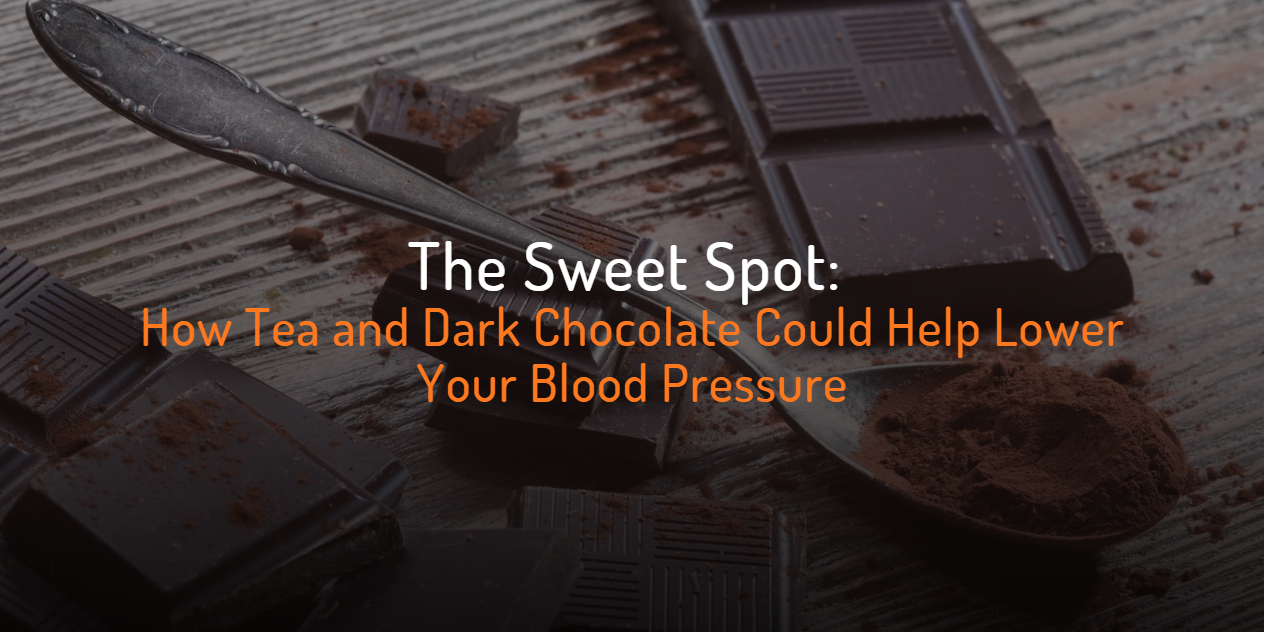

Chanel Willemse
General Manager
5 March, 2025
Your gut is the behind-the-scenes hero of your health. While it might not get as much attention as your heart or brain, it’s working overtime to keep your energy levels steady, your immune system strong, and your mind clear.
Feeling bloated, tired, or constantly under the weather? Spoiler alert: it might all start with your gut. Let’s dive into everything you need to know about maintaining a healthy gut microbiome – and why it’s the key to feeling your best.
What Is Gut Health, and Why Does It Matter?
Your gut is much more than a food processor. It’s home to trillions of microbes, collectively known as your gut microbiome. This microscopic community of bacteria, fungi, and viruses works like a perfectly choreographed team, keeping your body running smoothly and your health in check.
The Rainforest Analogy: Why Diversity is Key
Imagine a lush rainforest. For it to thrive, it needs a variety of plants, trees, and animals working together in balance. Your gut microbiome operates the same way – the more diverse the species of microbes, the healthier and more resilient your gut becomes.
What happens in a healthy “gut rainforest”?
- Food is broken down efficiently: Enzymes produced by your microbes help digest complex carbohydrates, proteins, and fats.
- Nutrients are absorbed effectively: Your microbiome extracts vitamins and minerals like B12, K, and magnesium from food to fuel your body.
- Chemicals are produced to keep you happy and healthy: Microbes create short-chain fatty acids (SCFAs) that reduce inflammation and support your gut lining. They also produce serotonin, the “feel-good” hormone, linking your gut to your mood.
Now imagine what happens when your rainforest is disturbed – say, if harmful bacteria take over due to poor diet or stress. The balance is disrupted, and the once-vibrant ecosystem struggles, leading to health issues like bloating, fatigue, and even anxiety.
Why Your Microbes Matter
Your gut microbiome isn’t just a passive passenger in your body – it’s an active participant in your health. Here are some key roles it plays:
Breaking Down Food
Many foods, like fibre, can’t be digested by your body alone. Your gut bacteria step in, breaking them down into beneficial compounds like butyrate, an SCFA that supports gut health and reduces inflammation.
Boosting Immunity
About 70% of your immune cells live in your gut. Friendly bacteria help train your immune system to distinguish between harmful invaders (like viruses) and harmless substances (like pollen).
Producing Vital Nutrients
Your gut microbes produce essential vitamins like:
- Vitamin K (for blood clotting)
- Vitamin B12 (for energy)
Keeping Inflammation in Check
A healthy microbiome creates anti-inflammatory compounds, reducing the risk of chronic diseases like diabetes, heart disease, and obesity.
Regulating Your Mood
Thanks to the gut-brain axis, your gut and brain are in constant communication via the vagus nerve. Gut bacteria influence serotonin levels, playing a big role in managing anxiety, depression, and overall mental health.
The Gut-Brain Connection: Your Inner Dialogue
Your gut and brain are in constant conversation, exchanging messages like two old friends on a group chat. This relationship, known as the gut-brain axis, is a two-way communication system that links the emotional and cognitive centres of your brain with your gut’s complex network of neurons and microbes.
This connection explains why a nervous stomach might accompany pre-presentation jitters or how a bad meal can leave you irritable or foggy. Let’s dig deeper into the science behind this fascinating relationship.
How Does the Gut-Brain Axis Work?
The gut-brain axis communicates through several pathways:
The Vagus Nerve
Often called the “information superhighway,” the vagus nerve directly connects your gut to your brain. It transmits signals in both directions, allowing the two to influence each other.
Research shows that stimulation of the vagus nerve can improve mood and reduce symptoms of depression and anxiety.
Microbial Messengers
The gut microbiome produces neurotransmitters like serotonin, dopamine, and GABA, which directly affect your mood and stress levels.
Around 90% of the body’s serotonin (the “feel-good” hormone) is produced in the gut, highlighting the critical role your microbiome plays in mental health.
Immune System Signalling
Gut bacteria help regulate inflammation, which can influence brain health. Chronic inflammation caused by an imbalanced microbiome (dysbiosis) is linked to depression, anxiety, and even neurodegenerative diseases like Alzheimer’s.
Hormonal Signals
Stress hormones like cortisol can affect gut health by altering microbial balance and increasing intestinal permeability (aka “leaky gut”).
Gut Health and Mental Health: What the Research Says
1. Depression and Anxiety
Studies increasingly point to a strong link between gut health and mood disorders.
A review published in EBioMedicine highlights that individuals with depression often exhibit alterations in their gut microbiota, including reduced microbial diversity and imbalances in specific bacterial populations. These changes can influence the gut-brain axis, potentially contributing to the onset and progression of depressive disorders.
Probiotic supplementation has been shown to reduce symptoms of anxiety and depression in some studies, likely due to their ability to regulate inflammation and produce mood-enhancing neurotransmitters.
2. Brain Fog and Cognitive Function
Ever feel mentally sluggish after a poor meal? That could be your gut-brain axis at work.
Research shows that dysbiosis can impair cognitive performance, possibly through inflammatory pathways and reduced production of SCFAs like butyrate, which supports brain function.
3. Stress Resilience
Your gut microbiome plays a role in how you respond to stress.
Certain strains of bacteria, like Lactobacillus rhamnosus, have been shown to reduce stress-induced behaviours in animal studies by modulating GABA production.
The Role of Serotonin: More Than a Mood Booster
Serotonin is often associated with happiness, but it does much more than regulate mood.
Gut Serotonin vs. Brain Serotonin
While most serotonin is produced in the gut, it doesn’t cross the blood-brain barrier. Instead, gut-derived serotonin affects:
- Local gut motility (how food moves through your system)
- Immunity
- Microbial balance
Serotonin’s Indirect Effects
Gut serotonin influences brain function indirectly by impacting:
- The vagus nerve (which connects the gut and brain)
- Immune responses
- Inflammation levels
The Gut in Action: A Day in the Life
Here’s what your microbiome might be doing on a typical day:
- Breakfast: You eat a bowl of oats and blueberries. Your gut bacteria feast on the fibre, fermenting it into SCFAs that strengthen your gut lining and reduce inflammation.
- Mid-Morning: You’re feeling energised because your microbes have helped extract B vitamins from breakfast, fueling your brain and body.
- Lunch: A salad with leafy greens and olive oil? Your microbiome is thrilled. Polyphenols in olive oil feed your good bacteria, encouraging diversity.
- Evening: After a stressful day, your gut communicates with your brain through the vagus nerve, influencing how you feel and helping you unwind.
Signs Your Gut Might Need Some Love
If your digestive system could send you a text, it might look like this:
📲 “Feeling bloated over here. Help!”
📲 “Why is everything moving so... slow?” (or too fast!)
📲 “Immune system crashing – I’m catching all the bugs.”
📲 “Skin’s freaking out – acne and eczema everywhere.”
📲 “Brain fog is real. Send serotonin ASAP.”
These are all red flags that your gut microbiome might be out of balance.
Why Should You Care?
Your gut microbiome is like a Swiss Army knife for your health – versatile, indispensable, and endlessly fascinating. By keeping it balanced, you’re not just improving digestion – you’re boosting immunity, enhancing mental clarity, and even lowering your risk of chronic disease.
The good news? With the right care, your microbiome can bounce back and thrive. It’s a resilient ecosystem that thrives on small but meaningful changes, like eating more fibre, reducing stress, and incorporating probiotics into your diet.
Want to learn how to nurture your gut? Check out tips on gut-friendly foods and supplements.
How to Keep Your Gut Happy
The good news? Improving your gut health doesn’t mean a complete lifestyle overhaul. A few simple changes can make a world of difference.
Feed Your Gut with Fibre
Fibre is the ultimate food for your good gut bacteria. It keeps digestion smooth and encourages the growth of beneficial microbes.
Best Sources:
- Whole grains: Oats, quinoa, brown rice.
- Legumes: Lentils, chickpeas, black beans.
- Fruits and veggies: Apples, berries, carrots, and broccoli.
Pro Tip: Increase fibre intake gradually and drink plenty of water to avoid bloating.
Add Fermented Foods to Your Plate
Fermented foods are rich in probiotics – live bacteria that help balance your microbiome.
Gut-Friendly Fermented Foods:
- Yoghurt with live cultures.
- Kimchi and sauerkraut.
- Kombucha and kefir.
DIY Idea: Top your lunch bowl with a spoonful of kimchi or enjoy kombucha as an afternoon pick-me-up.
Stay Hydrated
Water does more than quench your thirst – it helps break down food, supports nutrient absorption, and keeps everything moving smoothly through your digestive tract.
Pro Tip: Add lemon or mint to your water for a refreshing twist.
Say Goodbye to Processed Foods
Highly processed snacks and sugary treats can feed harmful bacteria, throwing off your gut’s balance.
Healthy Swaps:
- Instead of crisps, try roasted chickpeas.
- Swap sugary granola bars for homemade energy bites with oats, nuts, and honey.
Manage Stress for a Happy Gut
Stress doesn’t just mess with your mind – it affects your gut too. Chronic stress can disrupt digestion and alter your microbiome.
Quick Stress Busters:
- Try a 10-minute meditation app.
- Get outside for a walk.
- Practice deep breathing exercises.
Combine Probiotics with Prebiotics
Probiotics introduce beneficial bacteria, while prebiotics feed those bacteria to keep them thriving. Together, they’re a gut health dream team.
Examples:
- Probiotics: Yoghurt, miso, tempeh.
- Prebiotics: Garlic, onions, bananas, asparagus.
Fun Fact: Pairing bananas with yogurt creates the ultimate gut-friendly snack.
The Gut-Immune Connection
Here’s a fun fact: your gut is your immune system’s HQ. About 70% of your immune cells hang out in your gut, deciding what’s safe and what’s a threat. A healthy gut microbiome helps your immune system function properly, while an unhealthy one can lead to inflammation and illness.
How Personalised Vitamins Support Gut Health
A happy gut isn’t just about probiotics – it’s about giving your body the right mix of nutrients to create the ideal environment for your microbiome to thrive. Here’s how the vitamins and minerals in our personalised packs can support your gut and overall wellness:
- Vitamin A: Supports the gut lining by maintaining the integrity of epithelial cells, which act as a barrier against harmful substances.
- Vitamin D: Plays a role in regulating the immune system in the gut, helping maintain a balanced microbiome.
- Vitamin C: A powerful antioxidant that reduces inflammation and promotes collagen production, supporting the structural health of your digestive tract.
- Vitamin E: Helps reduce oxidative stress in the gut, creating a more stable environment for beneficial bacteria.
- Folic Acid & Vitamin B12: Essential for cell repair and energy production, both of which are crucial for maintaining the gut lining and keeping digestion smooth.
- Magnesium: Supports muscle function, including the muscles in your digestive system, aiding in healthy gut motility.
- Zinc & Selenium: Vital for healing the gut lining and regulating immune responses, particularly during periods of stress or imbalance.
- Iron: Keeps oxygen flowing to all parts of your body, including your gut, ensuring its cells have the energy to function properly.
- Biotin: Supports the metabolism of fats and carbohydrates, aiding digestion.
- Calcium: Helps regulate muscle contractions in the digestive system, supporting smooth digestion.
- Omega-3s: Reduce inflammation in the gut and promote the growth of beneficial gut bacteria.
The Bigger Picture: Personalised Wellness
Everyone’s body – and gut – is unique. Your activity level, diet, stress levels, and lifestyle determine what your body needs to feel its best. That’s why generic vitamin plans don’t cut it.
Vitamin Club’s personalised vitamin packs are designed to meet your specific health goals, ensuring your body has the nutrients it needs for a healthy gut, stronger immunity, better energy, and overall balance.
💡 Ready to discover your perfect vitamin mix? Take our quick Personalised Vitamin Quiz and get started on a tailored plan designed to support your gut and whole-body health!
Final Thoughts
Your gut health affects so much more than just digestion. By making small changes – like eating more fibre, embracing fermented foods, and managing stress – you can keep your gut microbiome thriving and your whole body feeling its best.
✨ Because when your gut’s happy, you’re happy. And isn’t that what we’re all aiming for? ✨

